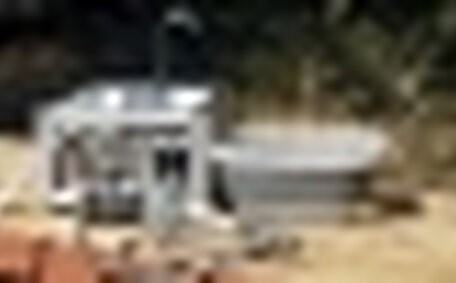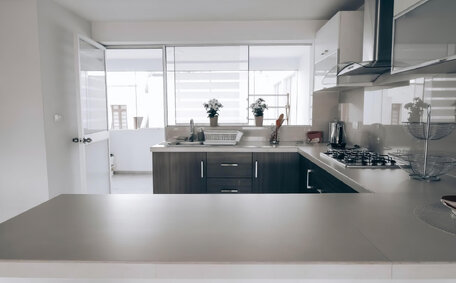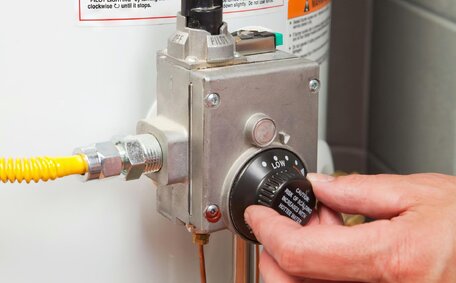Introduction to Off-Grid Hot Water Systems
Living with off grid solar often means finding alternative ways to meet daily needs without relying on public utilities. One essential comfort is access to hot water for bathing, washing dishes, and more. In areas where reliance on the electrical grid is not preferential, off-grid hot water systems provide this comfort through renewable resources like solar power.
These systems capture heat from the sun’s rays to warm water stored in insulated tanks. These systems capture heat from the sun’s rays to warm water stored in insulated tanks.
Options range from basic solar collectors, effective even during winter months, to more advanced heat pump systems. Key benefits of water heat pumps include sustainability, reliability during power outages, and independence.
Overview of System Options
When choosing an off-grid hot water system, there are several options to consider:
Electric
Electric water heaters, harnessing heating elements powered by pv panels and batteries, provide readily available and heated water tucked away in insulated tanks. Simple to install and operate, they work well for summer use but may lack capacity in winter.
Propane/LPG
Propane or LPG systems provide hot water via gas burners. They provide reliable hot water in all seasons but require fuel delivery and storage tanks.
Solar
Rooftop solar hot water systems use panels to capture heat and transfer it directly or via heat exchangers to an insulated storage tank. Though more complex, a solar hot water system is sustainable year-round.
Tankless
On-demand propane or electric tankless heaters ensure there’s no lag time in providing hot water, so you’re never caught out with there no immediate supply. They conserve space but can lack capacity for simultaneous uses.
Wood-Fired
Wood-fired boilers, acting as robust heaters, can toast renewable biomass fuel to heat fluid circulating towards a separate insulated tank. Though requiring hands-on effort, they utilise onsite fuel sources to produce off grid hot water.
Solar Water Heating
Using solar water heating harnesses power from the sun to ensure your hot water needs are met sustainably. These systems use solar thermal collectors mounted on the roof to absorb heat from sunlight. This solar energy gets transferred to water stored in an insulated tank ready for use.
There are two main types of solar collectors used: flat plate and evacuated tube. Flat plate collectors are less expensive but evacuated tube types are more efficient at capturing solar energy. However, both options rank among the most efficient methods to heat water when sized and angled appropriately.
Harnessing solar power delivers water solar heating with key benefits like sustainability, lower energy bills, and reliability, even amid power failures.
And using free renewable solar power means less reliance on fossil fuels. Just note that output falls on cloudier winter days. And using free renewable solar power means less reliance on fossil fuels.
With some upfront investment, solar water heaters provide a cost-effective, eco-friendly way to meet hot water needs off the grid year-round.
Wood-Fired Water Heaters
Wood-fired water heaters give a steadfast grid hot water solution, using renewable biomass to sidestep reliance on gas or electricity. Their operation is such that the heater can elevate the temperature of a water jacket or coils by igniting wood within an encased firebox. This heated water then circulates through pipes to an insulated storage tank, ensuring your water is always ready for household use.
Compared to intricate solar systems, wood-fired heaters have the competitive edge of functioning in all weather conditions and can be a robust addition to your solar system. And they circumvent more than the hassle of fuel delivery or storage by utilising onsite wood sources. However, they demand effort for gathering/preparing wood and stoking the firebox two to three times daily, with frequency variable with usage.
Thermostatically-controlled electric circulation pumps make this process more autonomous, appealing to those seeking the best options out there.
Wetback-style systems with your water tank directly attached, though compatible with off grid solar hot water designs, pose risks like steam buildup leading to explosion. External wood boilers feeding a separate tank are safer. Correct installation following standards, plus using seasoned hardwoods, are key to efficient, trouble-free operation.
For remote cabins or rural living offgrid, wood-fired water heating offers a rugged, time-tested solution to supply ample hot water completely off the traditional grid.
Propane/LPG Systems
Propane or LPG (liquefied petroleum gas) water heating systems work by burning propane to heat water stored in insulated tanks ready for use. A gas burner or heating elements create the heat which gets transferred to the water.
Unlike the weather-dependent solar water heater systems, propane heaters supply hot water reliably across diverse climatic conditions. And without solar panels or plumbing connections, LPG systems have lower installation costs. Refilling propane tanks is required yet still allows independence from grids or wood gathering.
Propane heaters can serve your home well as an affordable, low-maintenance off-grid solution to meet hot water needs. Make sure to size the LPG tank capacity and delivery schedule to support household demand year-round.
Heat Pumps
While the initial outlay is higher, heat pumps can save a lot over time in energy costs, proving to be an efficient hot water solution that uses just a trickle of electricity. They harness ambient warmth from the air or ground into water, thus transferring more energy to be stored in an insulated tank. While the initial commitment is higher, hot water heat pumps can slash your water heating costs significantly, often more than half.
Heat pumps can use ambient warmth effectively in warmer climates but lose efficiency below 40°F. So a supplemental heat source helps ensure adequate hot water in cold weather. Overall, heat pumps are a robust off-grid option where minimal solar or wind power is available.
Comparing Costs of Different Systems
When selecting an off-grid hot water system, understanding the costs can help play a key role in decision making. Here’s an overview of typical expenses:
Upfront System Costs
While electric and LPG water heaters have lower initial costs around $800-$2,000, solar setups can be more expensive initially. Solar systems run $2,500-$5,000 installed. Wood-fired boilers start around $2,000 but installation can be more costly than larger solar options, adding $2,000-$5,000 or more.
Operating Expenses
Electric heaters paired with an efficient solar pv system, like an off-grid setup, boast minimal running costs, thus championing energy independence. LPG refills for gas heaters average $100-$300 yearly depending on use and tank size.
Wood-fired boilers use free biomass fuel gathered onsite. Wood-fired boilers use free biomass fuel gathered onsite.
Efficiency Comparison
Heat pumps provide the greatest efficiency. Solar water heaters rank second when sized properly. Wood-fired and LPG systems follow.
Considering all costs in a long-term perspective facilitates pinpointing the best solution for your hot water system.
Installation and Maintenance Considerations
The task of installing off grid hot water systems mandates meticulous planning to accommodate spatial, ventilation, and structural requirements. Getting professional help drafting plans and making connections ensures code compliance and safety.
All systems also need some maintenance.
Solar collectors require occasional glass cleaning and leak checks. Wood boilers need ash removal plus gasket and component replacement over time. Heat pumps and tankless heaters use filters needing regular change-outs.
Any complex system may need tending to. For instance, pump solar components, control boards, heating elements, and storage tanks may falter. Having Riverwood Plumbing’s expertise on hand provides peace of mind to keep off-grid hot water flowing.
Sizing and Positioning
Properly sizing and positioning a hot water system maximises its efficiency. When relying on solar power especially, a south-facing sunny exposure is key to harvesting ample renewable energy.
As a rule of thumb, size the solar collectors to meet demand during winter when sunlight hours are fewer. For a 3-4 person household, flat plate collector area should total around 15-20 square feet. Evacuated tubes can get by with less space due to higher efficiency.
Hot water tanks sized 50-80 gallons are frequently chosen to suit your hot water system needs in off-grid homes. Locate them as close as possible to solar panels or boilers to minimise heat loss in pipes. Keep adequate ventilation around fuel-burning equipment too.
With experience designing customised off-grid water heating solutions for Riverwood homes, our team at Riverwood Plumbing can assess your property and needs to recommend the ideal system specifications for you.
Permits and Code Requirements
When installing any off-grid hot water system in the Sydney area, they took great care to obtain the proper permits and follow relevant building codes. This ensures safe, compliant operation while also meeting insurance requirements.
The specialists at Riverwood Plumbing keep abreast of local plumbing regulations, streamlining the whole process for off-grid installations. Relying on our experience through the permit and inspection process saves homeowners significant time and effort while avoiding potential violations or rework.
We guide clients on requirements like smoke detectors, adequate ventilation and clearances, anti-scald valves, thermal expansion tanks, and freeze protection details. Our team works closely with authorities so your new water heating system passes examination the first time.
Let Riverwood Plumbing take charge of navigating permits and code compliance, enabling you to get your focus back to relishing off-grid living comforts.
Routine Maintenance
Regular maintenance helps ensure off-grid hot water systems run efficiently and safely long-term. Some key tasks by system type include:
- Solar collectors – Check seals, check glass is clean, inspect plumbing for leaks
- Wood-fired boilers – Remove ash buildup, clean air vents and flues, replace worn gaskets
- Propane heaters – Inspect lines and fittings for leaks annually, leave repairs to professionals
- Heat pumps & electric – Change filters as needed, descale elements per manufacturer instructions
Beyond scheduled cleaning and component checks, monitoring usage and output helps identify issues early. Reaching out to Riverwood’s service team at the first sign of problems allows quick diagnosis and repairs to avoid disruption.
Extending System Lifespan
Taking steps to extend your off-grid hot water system’s lifespan saves money long-term. Here are tips to help components function efficiently for years:
- Install equipment properly following local codes
- Size solar collectors, tanks, and lines correctly
- Use surge protectors to avoid electronics damage
- Keep wood stove pipes and flues clear of ash buildup
- Replace failing pump seals, gauges, valves, and consumable parts as needed
- Inspect tanks & lines yearly for corrosion and leaks
- Descale heating elements; flush systems per manufacturer guidelines
- Insulate all pipes and components vulnerable to freezing
Here some attentive maintenance, guided by Riverwood’s expertise, ensures off-grid hot water systems can provide decades of reliable service.
Optimizing Efficiency of Your System
Several methods can optimise an off-grid hot water system’s efficiency to reduce energy use:
- Install black plastic coils on a solar water tank’s exterior to passively gather additional heat
- Insulate all hot water pipes to prevent heat loss
- Size solar collectors 20-40% larger to allow for overcast days
- Use a thermosyphon system without pumps for fully passive solar heating
- Supplement with propane/wood boilers to ensure ample capacity in winter
Attempting overly complex DIY solar systems risks poor performance or safety issues. Consulting experts like Riverwood Plumbing allows properly tailored design and professional installation for optimal efficiency.
Leveraging Renewable Energy Sources
Off-grid hot water systems present a prime opportunity to leverage renewable energy sources. Solar and wind power integrate seamlessly to reduce or eliminate fossil fuel reliance.
Solar water heating uses roof panels to capture the sun’s thermal energy. Sizing the collectors 20-40% larger ensures ample hot water even on cloudier days. Adding PV solar panels and batteries enables your solar system to power pumps, controls, and additional heating methods during winter.
Small wind turbines can also generate electricity to draw power for components such as heat pump compressors or electric heating elements. Wind and solar together provide sustainable electricity for water heating needs.
The team at Riverwood Plumbing specialises in custom integrating renewable energy into off-grid hot water systems for optimal efficiency. Contact us for a tailored solution harnessing onsite solar, wind, or hydro resources.
Energy Conservation Tips
Saving energy helps an off-grid hot water system function optimally. Follow these conservation tips:
- Take shorter showers to use less hot water
- Install low-flow showerheads to restrict water volume
- Fix any leaky faucets which waste hot water
- Add insulation around tanks & pipes to prevent heat loss
- Use cold water for laundry whenever possible
- Limit dishwasher use and hand wash dishes instead
- Only heat as much water as needed daily
- Lower the thermostat when away to reduce heating needs
With mindful usage guided by Riverwood Plumbing’s expertise, your off-grid hot water system can meet household needs while maximising efficiency.
Conclusion
Living off the grid often necessitates finding alternative solutions for daily needs like hot water. As outlined here, various sustainable systems can provide reliable access using renewable solar, wind, or biomass fuels instead of grid electricity.
Options range from basic solar collectors to more advanced heat pumps, wood-fired boilers, and propane heaters, each with distinct advantages. Carefully weighing upfront costs, operating expenses, efficiency, and maintenance needs allows determining the optimal system.
Proper sizing, installation, and integration of components ensures maximum efficiency and performance long-term. Coupled with energy conservation habits, these systems afford the comforts and convenience of hot water sustainably.
With decades of expertise designing and servicing off-grid hot water solutions, Riverwood Plumbing offers invaluable guidance tailored to your property and lifestyle. Contact us today to discuss your needs - we can assess your site and recommend the ideal system to meet your household’s hot water requirements sustainably.






